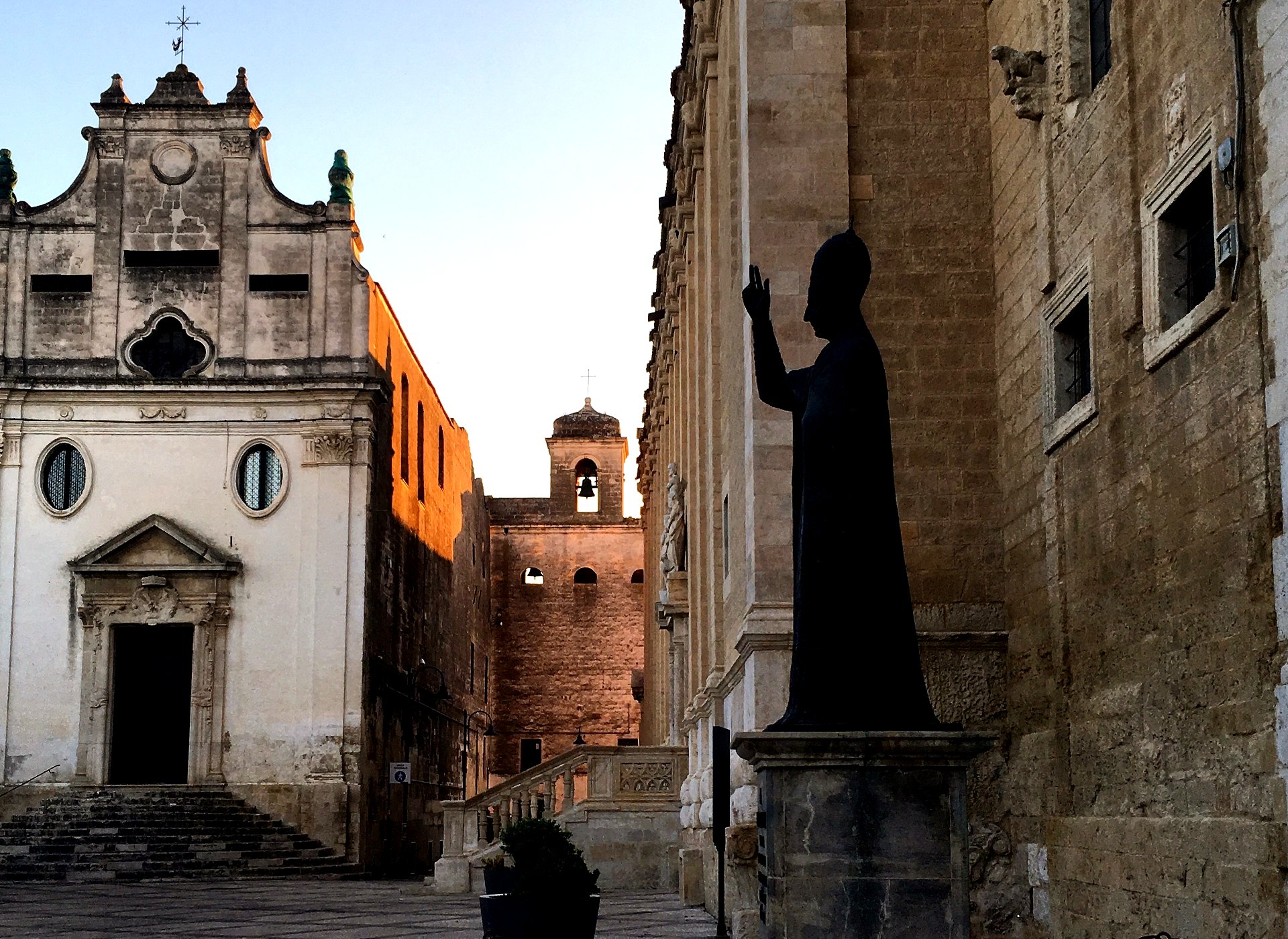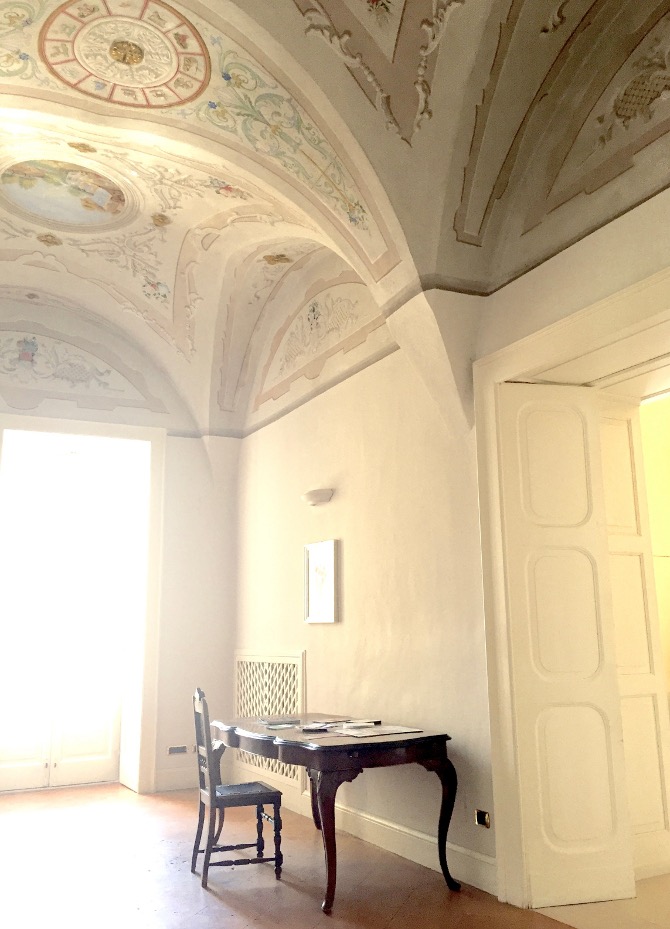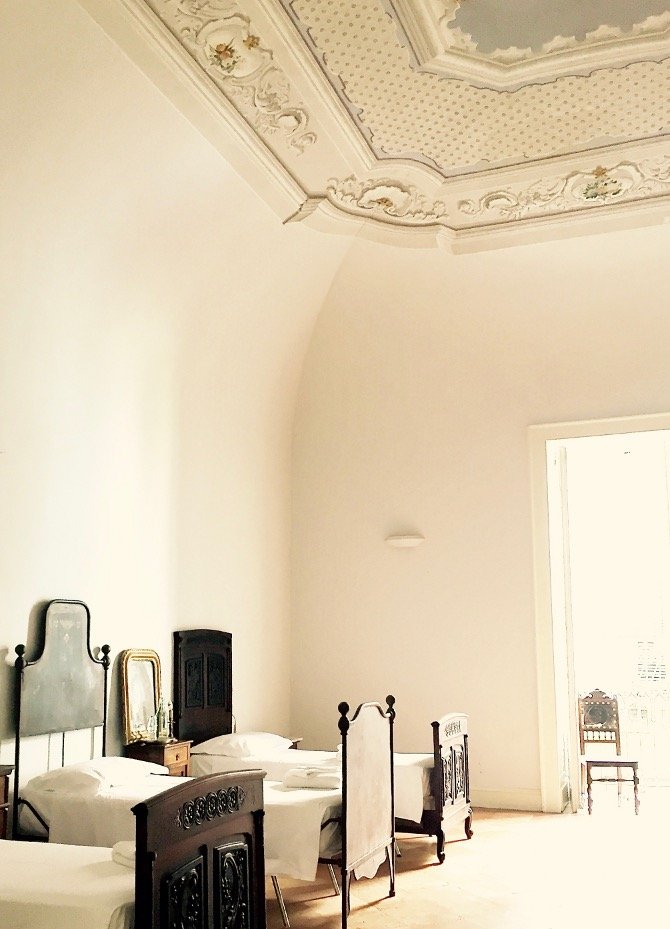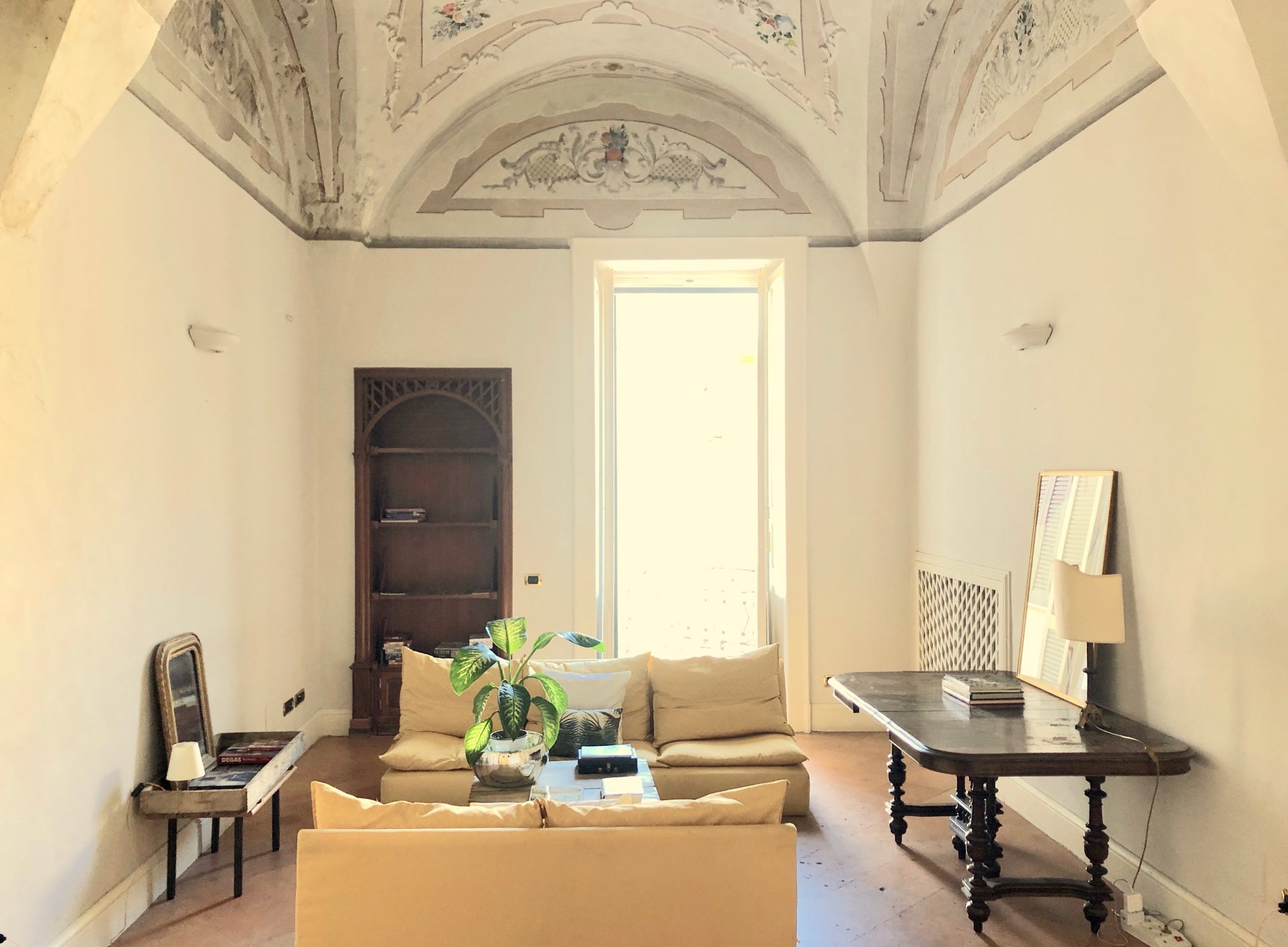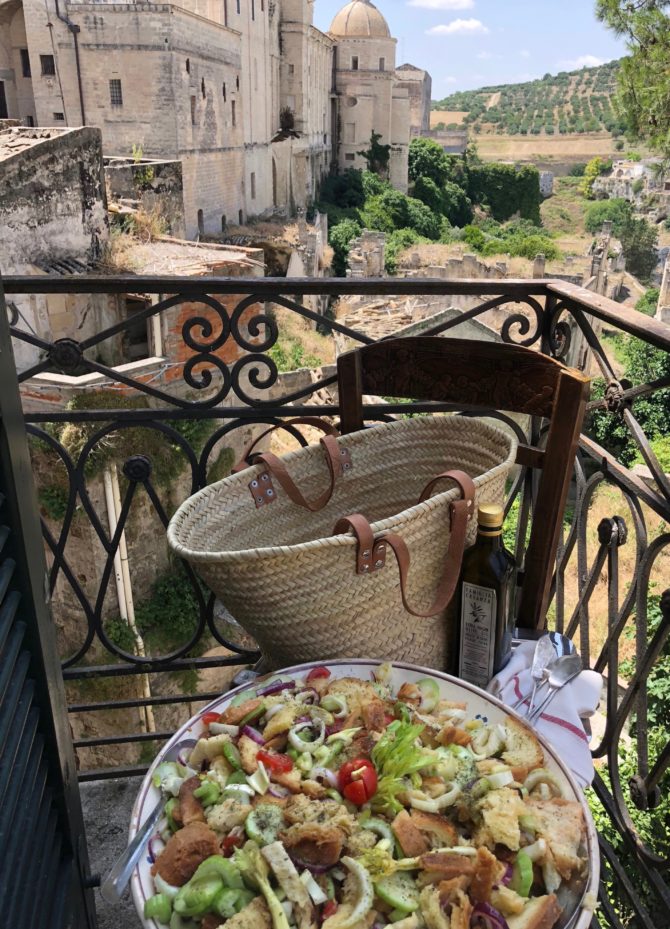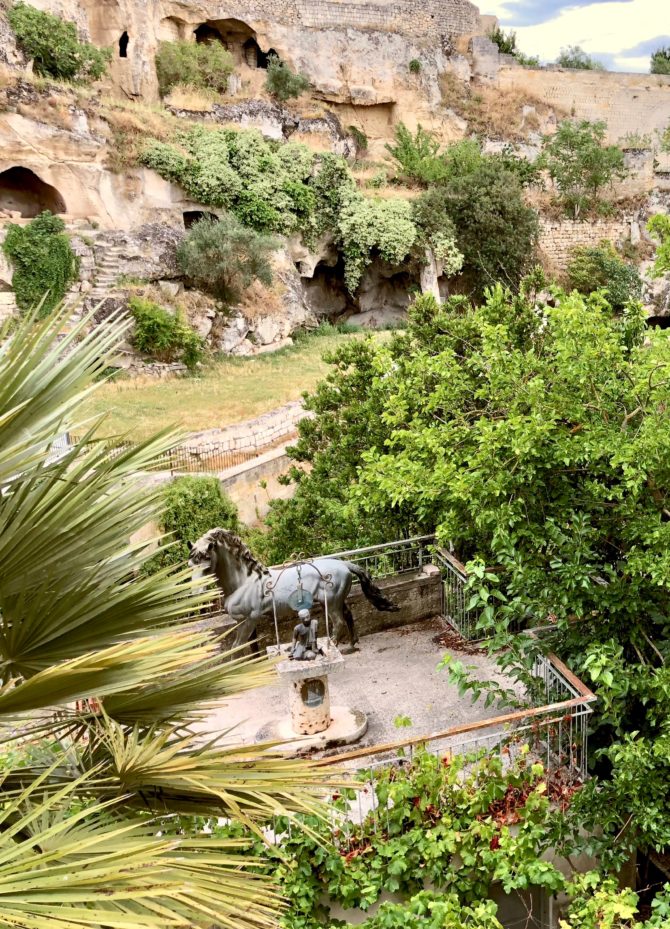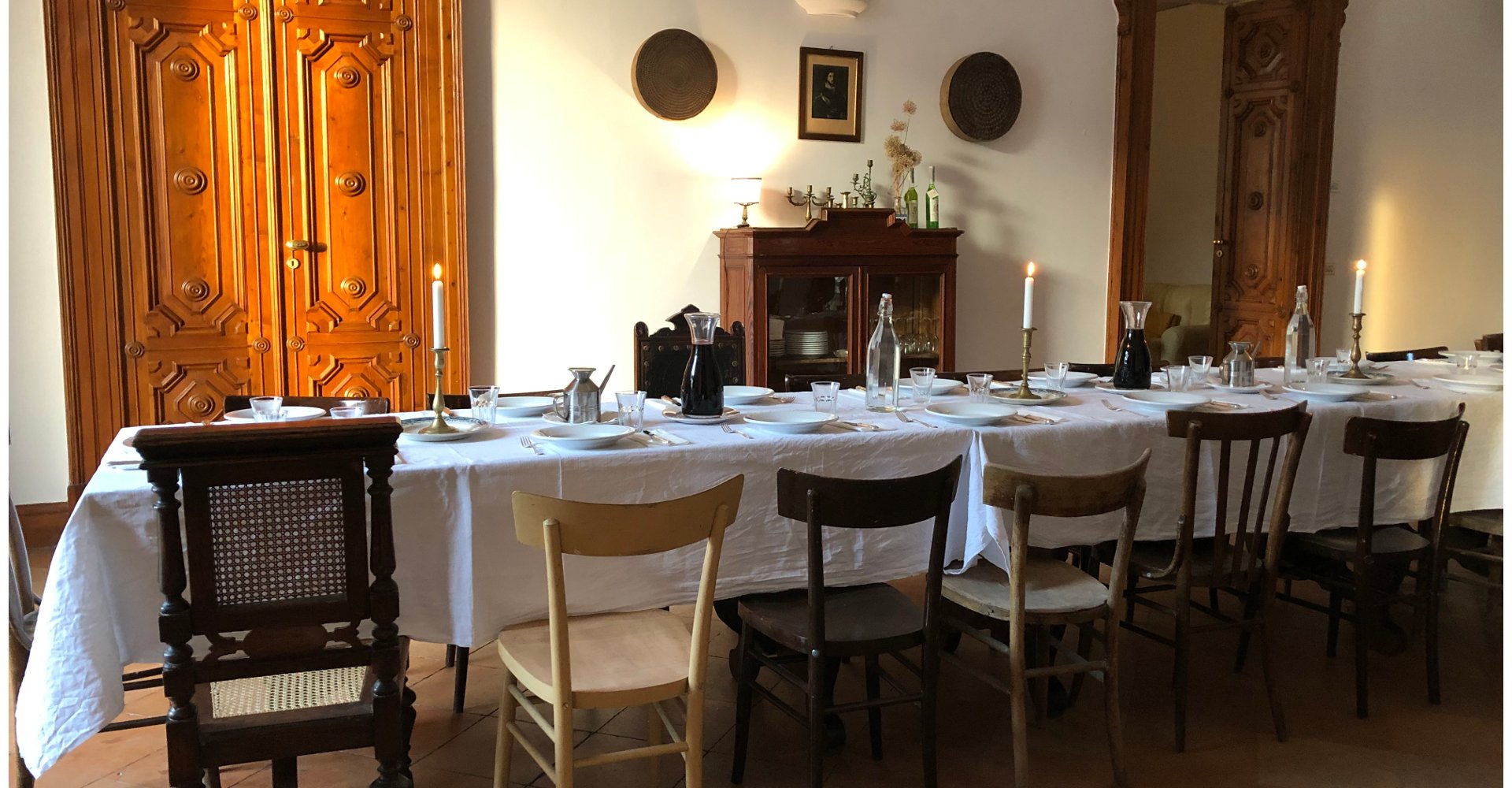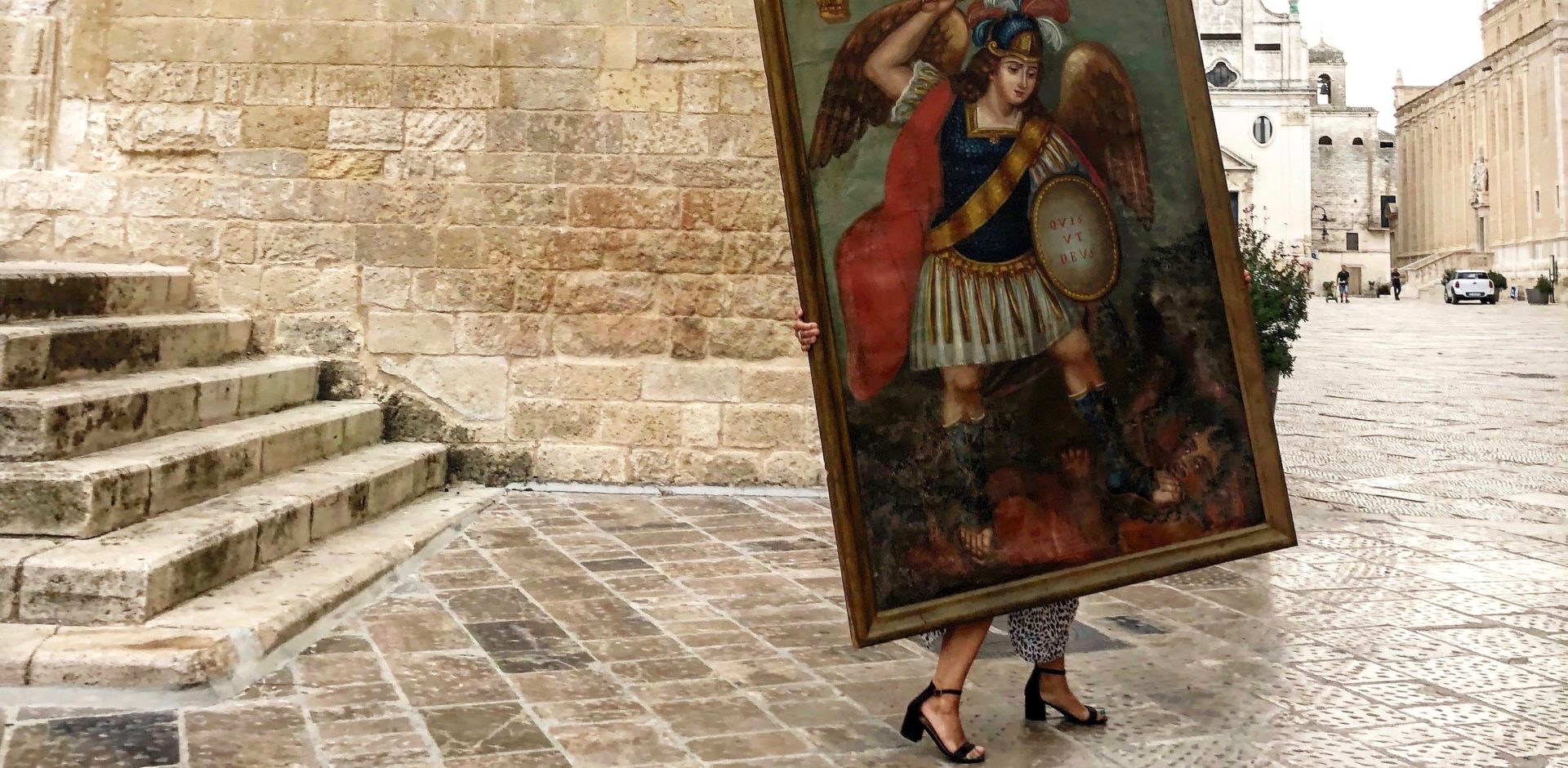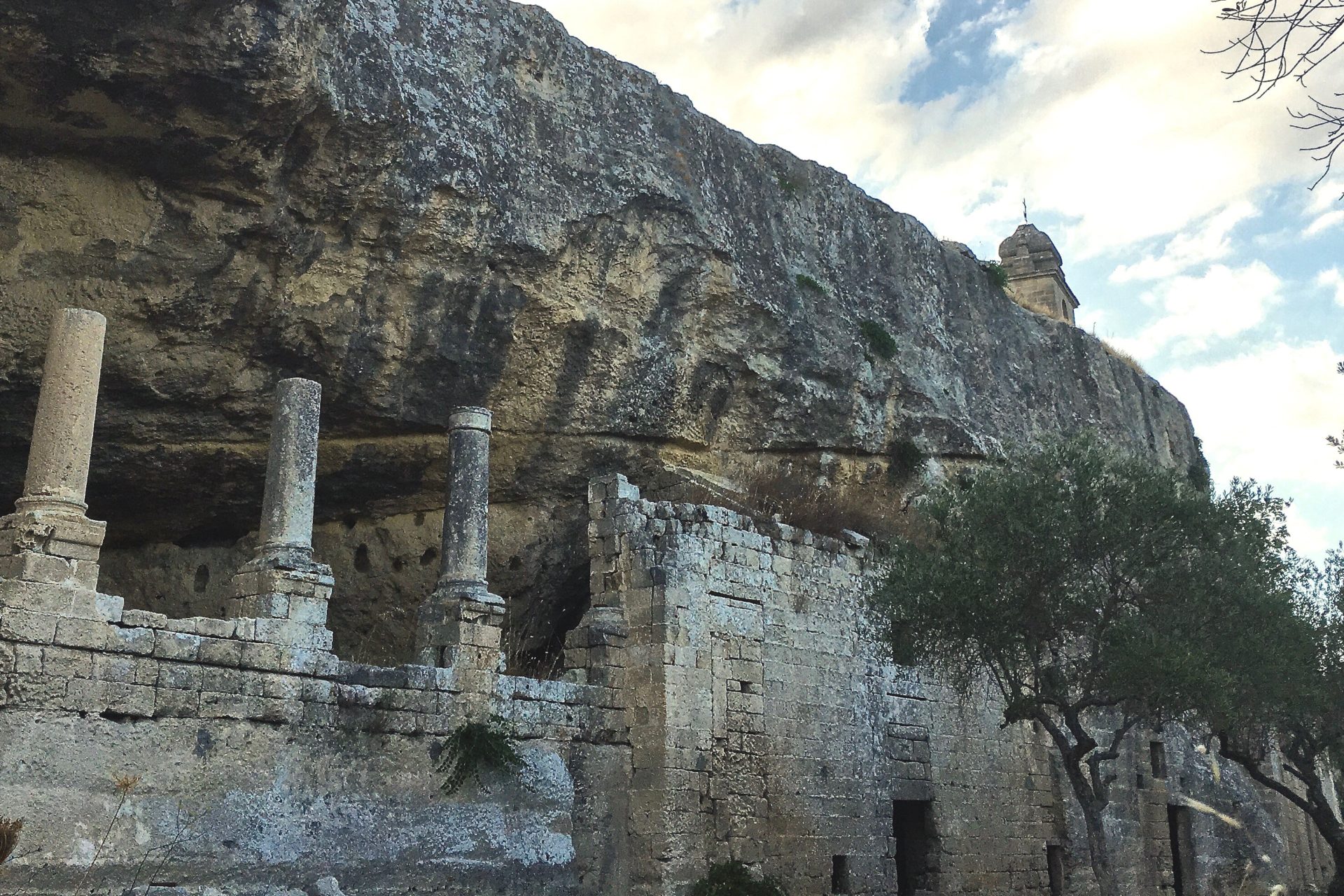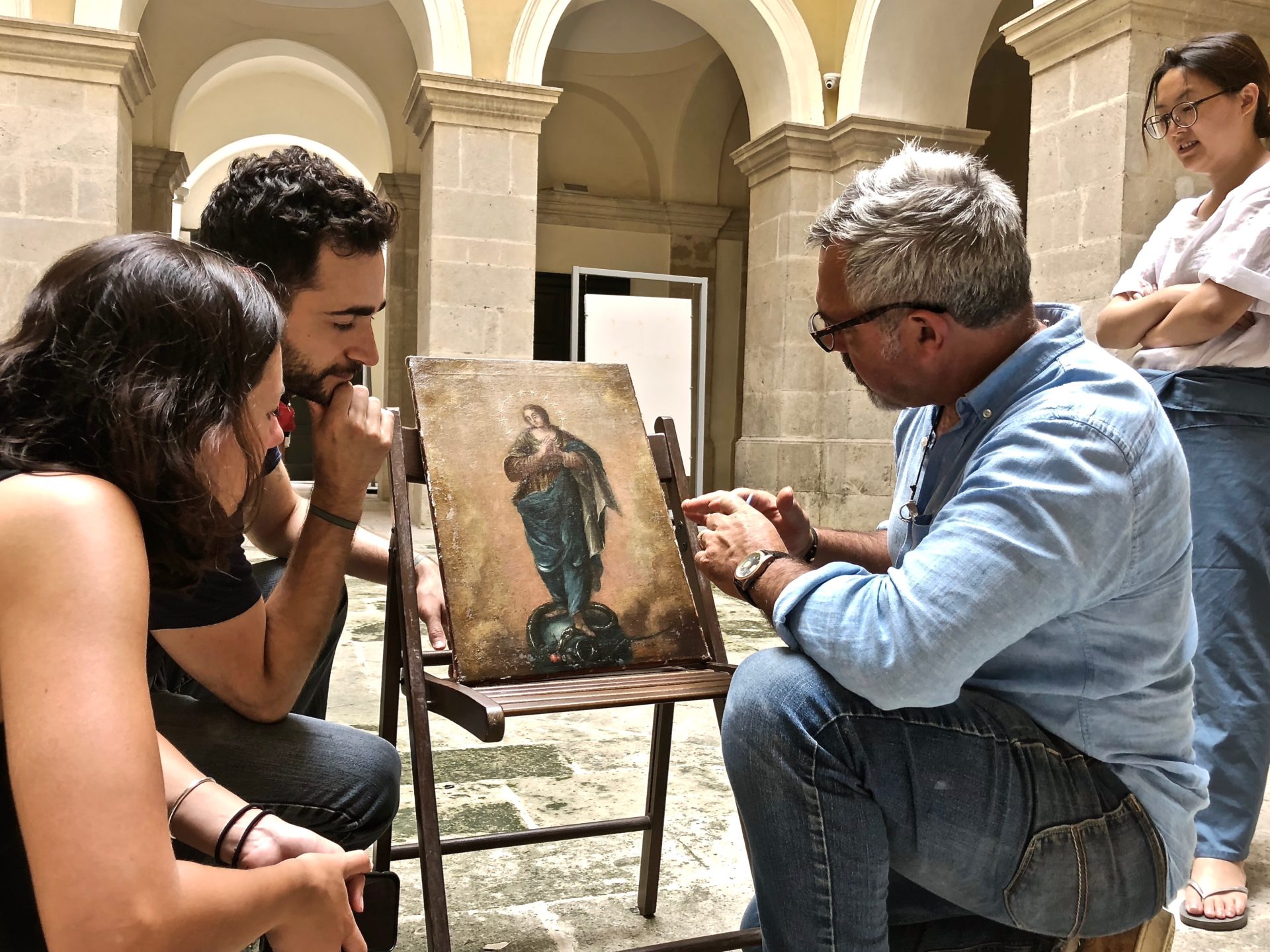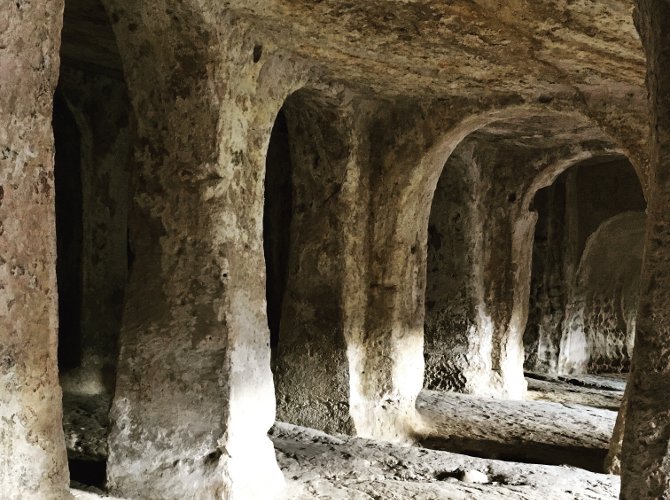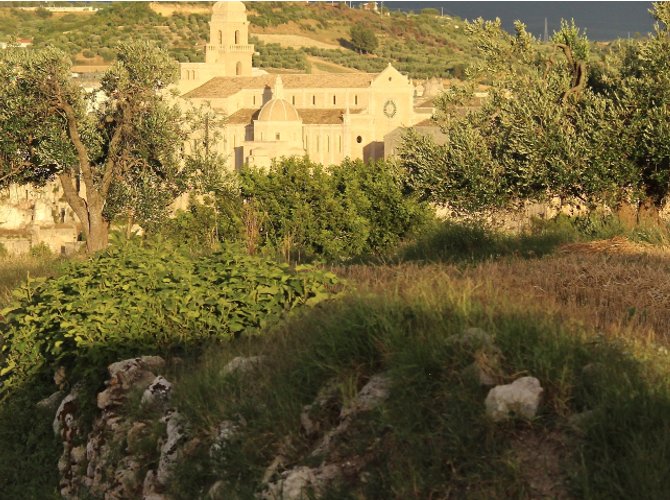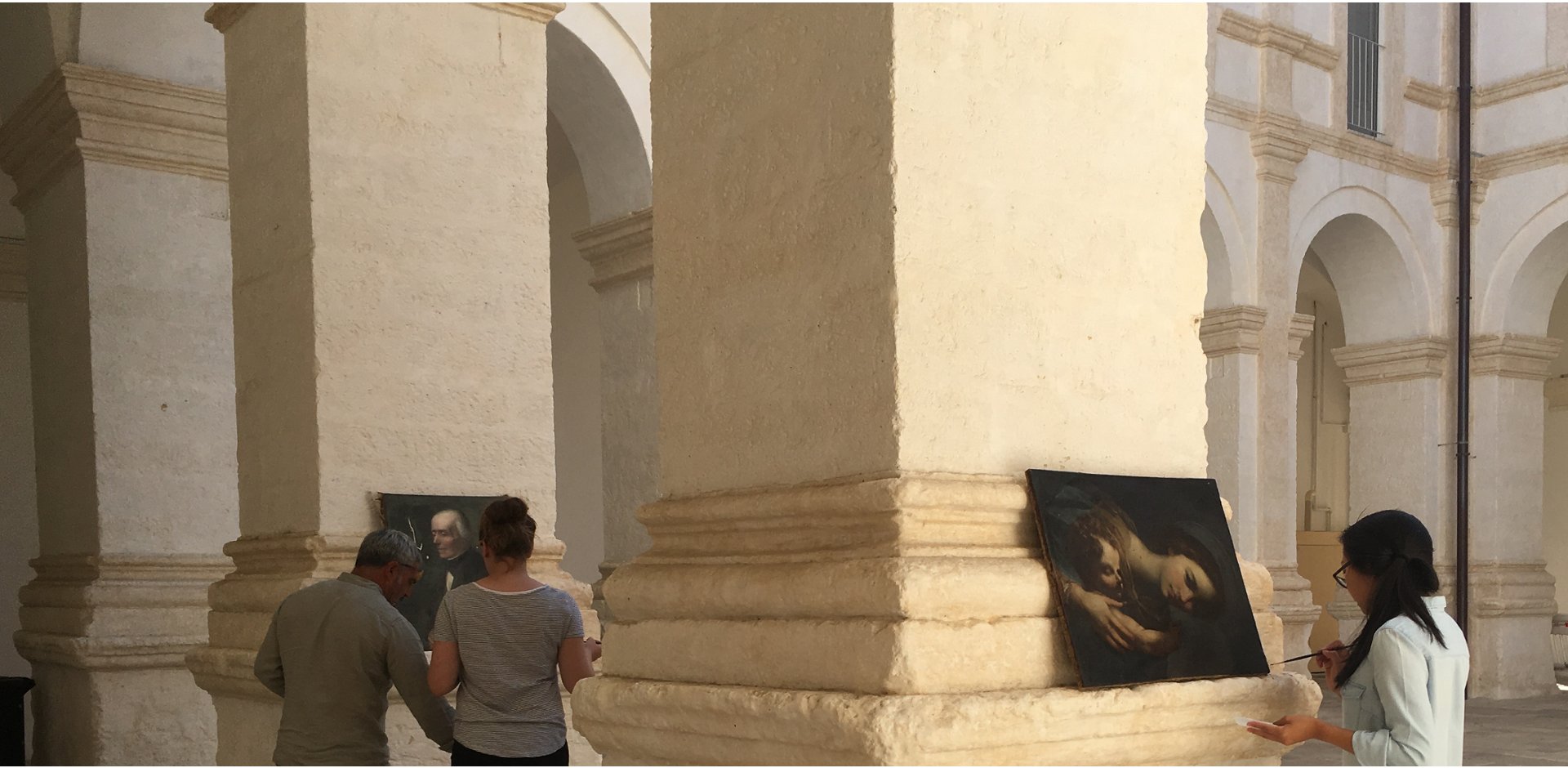During the workshops, our base is located in the small southern town of Gravina in Puglia. The town, built of golden tufa stone, crops up over a thread of rupestrian dwellings and ravine that winds towards open wheat fields and the sounds of evening swallows.
With its ancient roots in the Peucetii culture and its position on the Appian way from Rome to the Mediterranean sea, Gravina is dense with history, archaeology and the arts. Emperor Frederick II chose the surrounding plateaus as his personal hunting grounds, referring to the area as “Grana dat et Vina”- meaning the land of wheat and wine.
An hour inland from the Adriatic coast and neighbour to the Unesco World Heritage site of Matera, Gravina has been ruled through history by the Byzantines, Lombards, Normans, Swabians and North Africans and one of its native residents Vincenzo Maria Orsini, went on to become the Pope Benedict XIII.
The Ponte Acquedotto, a stone foot bridge spanning the ravine and flanked by two fountains on either side, links the open countryside with a wealth of archaeological sites to the historic heart of the town we’ll call home.
This summer the local residents of Gravina will be sharing their crops for our kitchen, their company during our conservation work and their local dialect, stories, and family recipes at our table.
Our private residence is in a 15th-century building in the historic town centre. The palazzo has retained some of its original features, however, it has been largely updated with modern amenities. Meals will be prepared in our kitchen and shared in the dining room, which leads to salons, bedrooms, bathrooms, and a balcony along one of the narrow residential streets and balconies off the dining room overlooking a abandoned area of the historic centre now growing with pockets of fig trees and pines. Shared bedrooms and bathrooms.
From our front door, walk to the piazza for a Peroni, and from the balcony, listen to the animated conversations that have inevitably turned to food. The region is home to seas of olive groves, almonds, durum wheat, Nero di Troia & Primitivo grapes and a foraging culture that brings wild oregano, fennel, and chicory to the local market. The town is a honeycomb of artisanal shops- cheese, focaccia, bread, cured meats, and osterias.
*Shared bedrooms – dorm style – and bathroom facilities.*
Our restoration studio in a local convent is adjacent to the Palazzo and where we work on paintings during their restoration process. Our hands-on work and research is conducted onsite on the underground Byzantine frescos of Fornello, Carpentino, and wall paintings at 17th-century Masseria Jesce are located in the countryside. The barn of Masseria La Selva serves as our bottega for practice with lime plaster fresco making during our Art Restoration workshop.
Rising with the morning church bells we head out of town with the farmers’ procession of tractors on their way to the orchards, caves, and fields to our open school of history and gastronomical knowledge.

